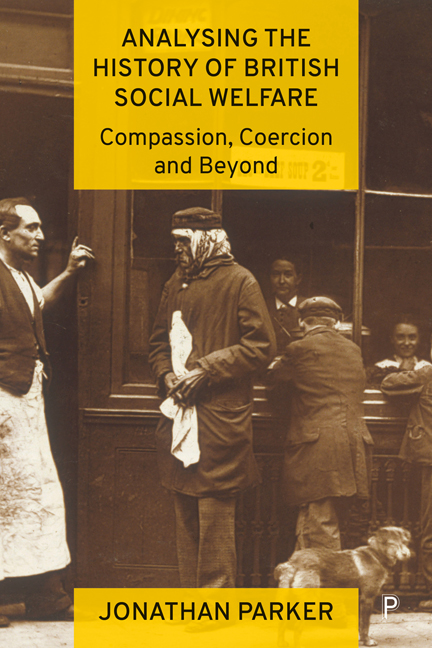Book contents
- Frontmatter
- Contents
- List of tables
- List of abbreviations
- About the author
- Acknowledgements
- 1 Concepts, continuities and critique
- 2 A brief history of British social welfare
- 3 Philosophical binaries and normative judgements
- 4 Chocolate, flowers and social welfare reform
- 5 War: the paradoxical crucible of welfare reform
- 6 Gendered perspectives on welfare
- 7 Piacular austerity: sacrificing the poor for the rich
- 8 Universal Credit versus Universal Basic Income: strange bedfellows?
- 9 Universal Credit versus Universal Basic Income: strange bedfellows?
- 10 W(h)ither welfare after Brexit and COVID-19?
- References
- Index
10 - W(h)ither welfare after Brexit and COVID-19?
Published online by Cambridge University Press: 20 January 2024
- Frontmatter
- Contents
- List of tables
- List of abbreviations
- About the author
- Acknowledgements
- 1 Concepts, continuities and critique
- 2 A brief history of British social welfare
- 3 Philosophical binaries and normative judgements
- 4 Chocolate, flowers and social welfare reform
- 5 War: the paradoxical crucible of welfare reform
- 6 Gendered perspectives on welfare
- 7 Piacular austerity: sacrificing the poor for the rich
- 8 Universal Credit versus Universal Basic Income: strange bedfellows?
- 9 Universal Credit versus Universal Basic Income: strange bedfellows?
- 10 W(h)ither welfare after Brexit and COVID-19?
- References
- Index
Summary
This chapter will explore the complex current position of UK social welfare and consider where welfare might go if, indeed, it survives into the future as a formal citizen entitlement post-Brexit, the 2020– 2021 COVID-19 pandemic and in a tense new socio-economic political global context following the war in Ukraine. This might appear to be alarmist. However, given the October 2021 withdrawal of the Universal Credit uplift introduced during the pandemic, a March 2022 budget that failed to address spiralling fuel and food costs, and a September 2022 emergency ‘fiscal event’ that offered tax reductions to business and high earners with little mention of public services, it appears that the needs of people requiring social protection continue to be misunderstood and unsupported. The chapter considers a variety of futures and draws upon Merton's theory of unanticipated, or unintended, consequences and Urry's (2016) anticipation of multiple futures. Predicting futures is difficult and can leave the one prognosticating, potentially promoting embarrassingly dated positions. However, if we consider such predictions to represent ‘wicked’ or at least complex problems we see possibilities that require us to analyse them from as many angles as one can (Rittel and Webber, 1973). This helps us explore what might be and what conceivable consequences might result, noting that it is not possible to identify causes and outcomes with complete confidence in ‘wicked’ problems. Connecting positions on Brexit, the pandemic and changing world events with prior historical understandings of the reasons why we provide welfare draws our excursus on its histories, interlinkages and differences to a close.
Theorising, anticipating and the future(s) of social welfare
In 1936 the American sociologist Robert K. Merton discussed the concept of unanticipated consequences of purposive actions. In later discussion, the term has often been altered to ‘unintended’ consequences. However, the two are different and need to be considered as distinct. Zwart (2015) distinguishes between consequences that are unintended – outcomes which are not explicitly desired but which may have, potentially, been anticipated – and those actions that are both unanticipated and unintended – that were not acknowledged or foreseen as potential outcomes and were also not explicitly desired. Precision is important here, and an introduction to Merton's thinking is warranted.
- Type
- Chapter
- Information
- Analysing the History of British Social WelfareCompassion, Coercion and Beyond, pp. 170 - 184Publisher: Bristol University PressPrint publication year: 2023



